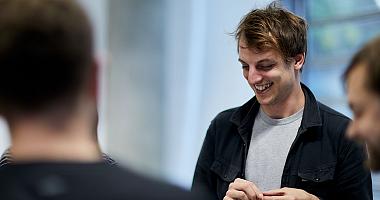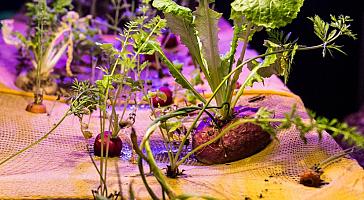MA
Art & Politics
Content navigation menu
Why study MA Art & Politics at Goldsmiths
Working from a materially diverse basis, this programme engages with a range of empirical, aesthetic, conceptual and material issues that traverse and exceed both 'art' and ‘politics’ to speak with our current contemporaneity.
- Explore practices and issues related to our current contemporaneity in terms of public space, democracy, equality, participation, states of exception, collectivity, performance and justice.
- Examine a range of material practices and strategies which, in the encounter between art and politics, play out in numerous forms and very different kinds of social spaces.
- Develop frameworks and spaces that are mixed and mobile, and which can operate in trans-disciplinary settings. You'll join students from a range of backgrounds and disciplines, meaning that the political character of both theory and material practice take on renewed vigour and urgency.
- Investigate the potential of art, material practice and trans-disciplinarity in times of political and cultural crisis. During this programme, you will interrogate the relationship between material practices and theory, work within constraints and also within the interstices of artistic, cultural, social and political practices.
- Choose from a range of option modules that encourage you to work across areas of particular interest to you.
Contact the department
If you have specific questions about the degree, contact Dr Bernadette Buckley (Programme Convenor) or for information on practice-based optional modules please contact Dr David Martin (Counter-Mapping).
Length
1 year full-time or 2 years part-time
Fees
Home - full-time: £11170
Home - part-time: £5585
International - full-time: £22640
Department
Watch videos about your course
What you'll study
You will take the following compulsory modules:
| Module title | Credits |
|---|---|
| Art and Politics 1: Theory History Event | 30 credits |
| Designing politics (group project) | 30 credits |
| or | |
| Counter-Mapping: The Politics of Space | 30 credits |
| MA Art & Politics Dissertation | 60 credits |
Assessment
Assessment consists of coursework, extended essays, reports, presentations, practice-based projects or essays/logs, group projects, reflective essays, and seen and unseen written examinations.
Time Magazine
Student Davide Monteleone was commissioned by Time to create a series of powerful black and white portraits of migrants trying to cross the Mexico-US border; two of which ended up on the magazine's cover. You can see more of David's work on the Time magazine website.
We Hybrids
We Hybrids consists of collaborative workshops which, through direct participation, explore how our collective perception is formed and how it takes control of social memory and communication. Read more about We Hybrids.
Take Refuge
Take Refuge is a meditative sound experience influenced by the language and design of self-care initiatives. Read more about Take Refuge.
Guided Tour of Cheltenham
A guided tour of the town showing the historical buildings as theatre props, around which various new developments have been built. Read more about this project.
Careers
Our graduates come from diverse disciplinary backgrounds and embark on highly contrasting career paths. These include careers in:
- Curating (both independent and embedded)
- Art practice (both collaborative and individual)
- Journalism (radio, web and print journalism)
- Performing arts
- Central and local government
- Work with NGOs (national and international)
- Research (academic and professional)
- Project development, administration and management
Some of our graduates undertake further professional training in law, journalism, education and social work.
Skills
Some of the skills you'll develop during the Masters include:
- A critical engagement with the broad field of international studies
- Communication skills
- Research skills
- Presentation skills
Entry requirements
You should have (or expect to be awarded) an undergraduate degree of at least upper second class standard in a relevant/related subject.
You might also be considered for some programmes if you aren’t a graduate or your degree is in an unrelated field, but have relevant experience and can show that you have the ability to work at postgraduate level.
International qualifications
We accept a wide range of international qualifications. Find out more about the qualifications we accept from around the world.
If English isn’t your first language, you will need an IELTS score (or equivalent English language qualification) of 6.5 with a 6.5 in writing and no element lower than 6.0 to study this programme. If you need assistance with your English language, we offer a range of courses that can help prepare you for postgraduate study.
Fees and funding
Annual tuition fees
These are the PG fees for students starting their programme in the 2024/2025 academic year.
- Home - full-time: £11170
- Home - part-time: £5585
- International - full-time: £22640
If your fees are not listed here, please check our postgraduate fees guidance or contact the Fees Office, who can also advise you about how to pay your fees.
It’s not currently possible for international students to study part-time under a student visa. If you think you might be eligible to study part-time while being on another visa type, please contact our Admissions Team for more information.
If you are looking to pay your fees please see our guide to making a payment.
Funding opportunities
Explore the Goldsmiths scholarships finder to find out what funding you may be eligible for.
If you are a UK student you may be eligible for a postgraduate loan.
Meanwhile our Careers Service can also offer advice on finding work during your studies.
Paying your fees
Find out about paying your tuition fees.
Additional costs
In addition to your tuition fees, you'll be responsible for any additional costs associated with your course, such as buying stationery and paying for photocopying. You can find out more about what you need to budget for on our study costs page.
There may also be specific additional costs associated with your programme. This can include things like paying for field trips or specialist materials for your assignments. Please check the programme specification for more information.
How to apply
You apply directly to Goldsmiths using our online application system.
To complete your application, you will need to have:
- Details of your academic qualifications
- The email address of your referee who we can request a reference from, or alternatively a copy of your academic reference
- Copies of your educational transcripts or certificates
- A personal statement
You'll be able to save your progress at any point and return to your application by logging in using your username/email and password.
When to apply
We accept applications from October for students wanting to start the following September.
We encourage you to complete your application as early as possible, even if you haven't finished your current programme of study. It's very common to be offered a place that is conditional on you achieving a particular qualification.
Late applications will only be considered if there are spaces available.
If you're applying for funding, you may be subject to an earlier application deadline.
Selection process
Admission to many programmes is by interview, unless you live outside the UK. Occasionally, we'll make candidates an offer of a place on the basis of their application and qualifications alone.
Further guidance
Read our guide to applying for a postgraduate degree at Goldsmiths.







